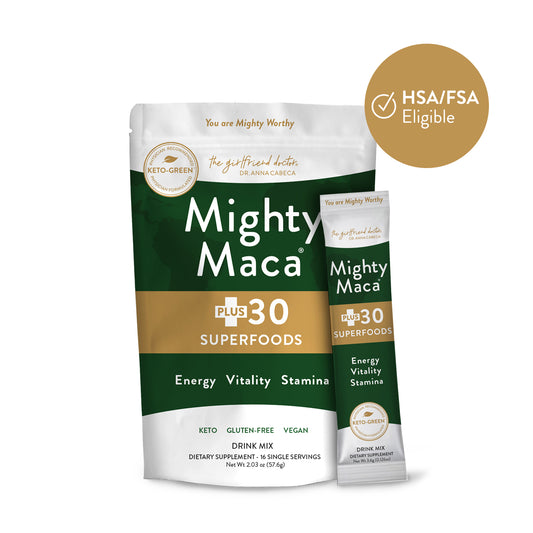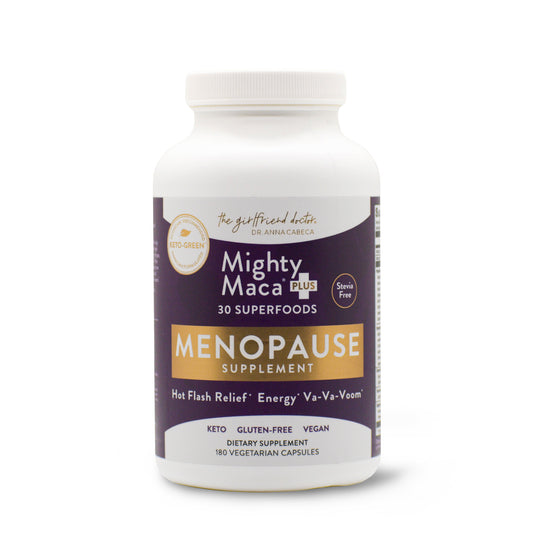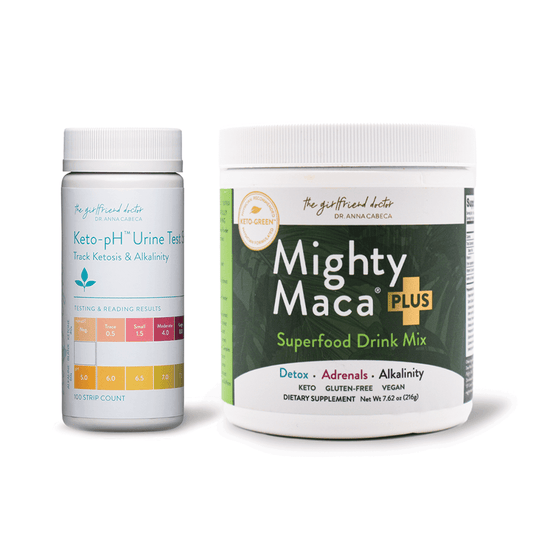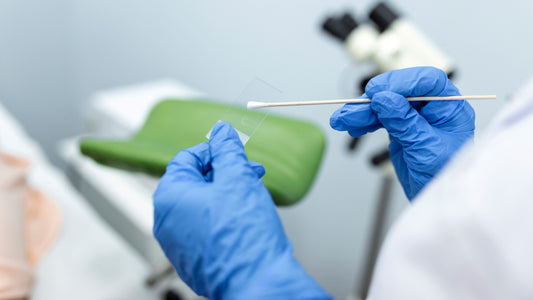Do you feel distant from your spouse, partner or loved ones? Do you feel stressed, tired, lonely and disconnected from others and even yourself? Have your desires faded (whether that be desire for your partner, favorite activities, social gatherings or otherwise)?
If so, you aren’t alone. Many women (and men!) feel this way and I have been there too.
You should know that you can do something about it, starting today.
Do You Just Not Have The Energy to Care and Connect?
The answer to why you may feel this way is in your body’s biology. I always say that our physiology helps drive our behavior. What does this mean? Your internal physiological and biological processes play a huge role in effecting your actions, your thoughts, and your feelings. If the physical you is out of balance, the mental you will be, too.
So, what biological process am I talking about in particular, that so affects our ability to enjoy our relationships and favorite things? I’m talking about chronic stress. Stress from work, family, caregiving, finances, illness, our relationships themselves, environmental toxins...and so much more.
We need to recognize that chronic stress affects our hormone health, which can throw us way off-balance. One hormone in particular, cortisol, can literally shut down our desires...our desire to be around our partner...our desire for sex...our desire to share our lives with family and friends.
The Ongoing Tug-of-War Between Cortisol And Oxytocin
Cortisol is anti-inflammatory and is important to many of our body’s basic, everyday immune functions. It is also one of our life-saving hormones and is an immediate responder in times of danger and stress. We’ve all heard the “tiger, fight or flight stress response” analogy...in caveman times when the tiger attacked it was cortisol that took over and diverted the body’s resources to fighting the tiger.
In this example, cortisol would increase blood flow to the arms and legs, heighten focus and mental alertness, temporarily raise the body’s threshold for pain, and best prepare the body so the caveman could run or fight.
At the same time, this meant that the caveman’s body wouldn’t be focused on other non-emergency processes. So, no focus on a healthy nutrient-absorbing digestion! No focus on sexual libido or sexual reproductive health! No need to focus on anything except fighting the tiger. No need to feel frisky if you’re about to be eaten!
Once the tiger was no longer a threat, cortisol levels would then lower back down to a healthy level. Friskiness would return and the gut would once again digest food and absorb vital nutrients. For many of us, however, excess cortisol is not “temporary,” and our bodies remain in a constant state of hypervigilance, causing too much cortisol. Our bodies are working overtime, all the time, because we have so much continual stress in our day-to-day lives.
The bottom line: too much cortisol output, for too lengthy of time, is not a good thing. When this occurs, our adrenal glands - where cortisol is produced - become dysfunctional. They may then significantly decrease making cortisol.

Some symptoms of adrenal dysfunction are:
- Feeling ultra-fatigued, yet not sleeping at night
- Brain fog
- Blood sugar spike or insulin resistance
- Gaining belly fat as your metabolism slows down.
- Becoming sick with a cold as your immune system becomes suppressed.
- Anxiety, mood swings and irritability.
- Sugar and food cravings
A perfect example of someone who runs on excess cortisol is a person who takes a vacation (relieving the chronic stress of their day-to-day world) and for some unexplainable reason immediately gets a cold. Take the stress away, cortisol goes down, and “boom!” underlying inflammation flares up.
Along with adrenal dysfunction, chronic high cortisol eventually leads to chronically low levels of cortisol, and that causes problems, too (remember, a healthy level of cortisol is needed to protect our body from inflammation).
Adrenal exhaustion eventually occurs. This is where your body starts to suffer from increasing inflammation, oxidative damage and rapid aging. All that inflammation further compromises our immune system. And we know that inflammation causes most - some 90% - of chronic disease.
We can start to see low libido and sexual performance issues. We can start to see depression.
It also becomes easier to disconnect, detach, walk away and not look back.
These symptoms are also a sign of low oxytocin.
Meet oxytocin

Oxytocin is the powerful hormone of love, bonding and connection. Oxytocin is also the hormone released during hugging, play, laughter, and with giving.
I first encountered oxytocin’s powers in love and connection as an obstetrician. A woman’s body produces oxytocin in abundance during labor. This is why there is such an immediate and powerful bond when you hold your infant for the first time, a powerful unity that you’ve maybe never experienced before.
If you’ve ever nursed a baby, think back to the process that occurs during breastfeeding called milk “let-down”. You just need to hold your little one and think about nursing, and the oxytocin starts to flow, and then your milk does, too! As your baby nurses, your bond grows even more deep and powerful. Later on, just a hug from your child, that unconditional love, will release oxytocin.
Oxytocin is also produced in abundance during orgasm and climax. I often call oxytocin the “Big O” for orgasm. Really, all pleasurable activity with your partner generates more and more oxytocin and furthers the bond with your mate.
Oxytocin is all about relationships, nurturing, and attachment. It is about giving and receiving pleasure, kindness and happiness. Have I convinced you that you need as much oxytocin in your life as possible? That helping others to increase their oxytocin is also a beautiful gift?
Well, no surprise. Oxytocin and cortisol have a love-hate relationship. Oxytocin and cortisol oppose each other. They are the two boxers in a ring, or the two kids on a seesaw. When one goes up, the other is forced to go down. The key is balancing the two.
This is where this topic gets personal
Several years ago, my family and I were traumatized when my young son passed away in a tragic accident. All of us experienced PTSD and I became clinically depressed. I was stressed beyond coping; sleepless; inflamed; infertile and suffering from major hormone imbalance. The lingering, chronic stress took its toll on my mind, my body and my relationships. I became disconnected from myself and from my husband… and my marriage eventually ended.
I now know that chronic stress and PTSD triggered the cortisol-oxytocin disconnect and it made me unconsciously walk away from things and people.
Simply put, I walked away because cortisol had WON.
You Need To Put Oxytocin In The Winner’s Circle
To counter cortisol and create more oxytocin in your life: hug, laugh, play, look into someone’s eyes and smile, give gratitude and thanks, play, and stay in the present.
Other things you can do to keep oxytocin at healthy levels are:
- Learn to better control stress and also manage your thoughts around stressors you simply cannot control. You can’t remove all stress from your life, so don’t even try (that’s stressful!). I like HeartMath® as a means to better manage daily stress.
- Do some form of meditation everyday, along with a few minutes of deep belly breathing (slow breaths deep within the abdomen, at about 5-6 breaths per minute works best). For meditation, I like yoga or just walking in nature; but I am also a big proponent of gratitude journaling. Here is a great article I previously wrote on how to mentally detox, which includes info on gratitude journaling and ways to focus on the positives in your life. Giving gratitude is a great way to create more oxytocin and just feel better, overall!
- Find ways to improve the quality and quantity of sleep! This balances hormones and resets your natural circadian rhythm. It may help to try a non-habit-forming sleep aid as well.
- Carve out time each day to connect with those around you and reduce your stress. An easy suggestion? Don’t have dinner while watching TV; instead, sit down with your partner or family and share in everyone’s day.
- Make love! Remember the “O” in oxytocin is also the “O” in orgasm. Making love is a great way to counter the negative effects of too much cortisol.
All of these changes - many of which you can start today - can help you feel less isolated and more in the mood for enjoying your loved ones again.
There are also other things you can do to help keep your cortisol at healthy levels, proactively, like nourishing your adrenals! I would be remiss when talking about stress, the cortisol-oxytocin connection and adrenal burnout, if I didn’t bring up consuming adrenal adaptogens. Adaptogens are herbs that have been shown to resist disease and adapt to environmental stresses. One of my favorite adrenal adaptogens is Peruvian Maca. Research has shown it to have adaptogenic properties that it can pass along to you. It helps your body adapt to imbalances with all of your hormones, whether that be cortisol, sex hormones, thyroid or others.
One final note on improving desire and your ability to connect with your partner
If you are like many women who are in perimenopause or menopause, it isn’t just cortisol and oxytocin that can be out of balance, resulting in this feeling of isolation and disinterest in your relationship.
Reproductive hormones such as estrogen, progesterone, testosterone and DHEA can be greatly reduced due to natural aging or many other physical causes (the foods you eat, environmental toxins, even the medications you may take!).
This can cause other physical and emotional symptoms that may further impact your relationship.
Physical symptoms such as vaginal dryness and irritation, pain during intercourse, incontinence; along with hot flashes and mood swings, can make us shy away from our partner. Hormone imbalances can cause us to feel negative about ourselves, tanking our self-esteem and our femininity.
It’s hard to feel frisky when you are in pain or are embarrassed by symptoms such as leakage. It is also sometimes difficult from the man’s sexual health side, too, if he is experiencing issues relating to his own hormone imbalances.
Just don't give up! There are many easy steps you can take to improve your life and your relationships.
Make everyday a truly special one for all of the relationships in your life.
P.S. You can read much more about the substantial research behind maca as an adrenal adaptogen (and how it also supports improved libido and sexual function...yes the research supports this!). All of these amazing benefits is why I chose maca as the key ingredient in my Mighty Maca® Plus superfoods green drink (and why I use it as a core foundational element of my Keto-Green™ Diet and Lifestyle program).







